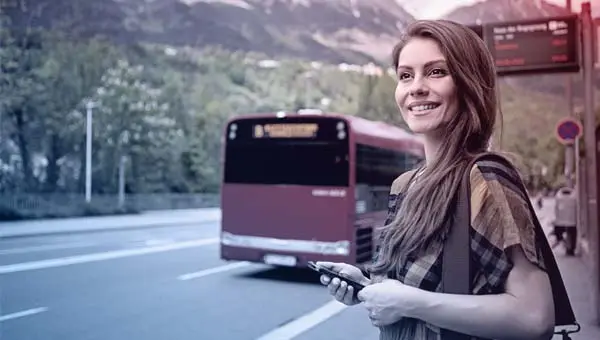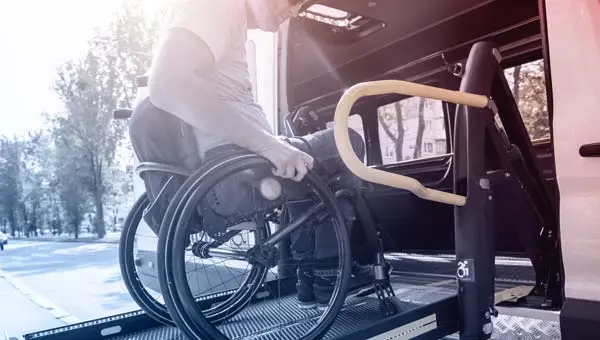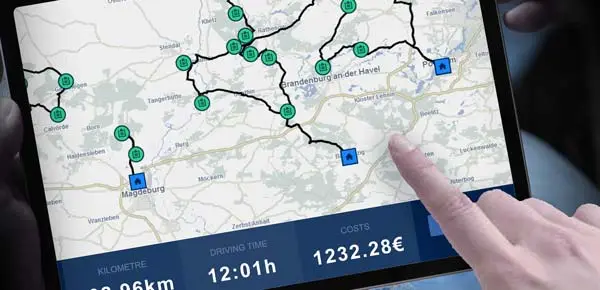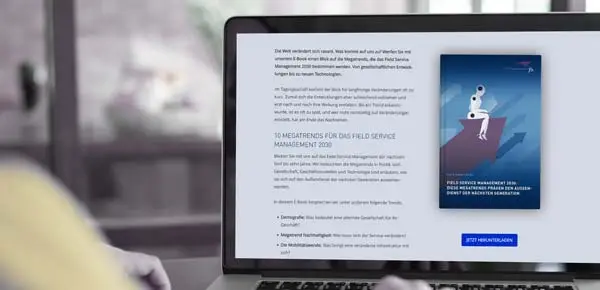
INDUSTRY: PASSENGER TRANSPORT
RESPONSIVE SCHEDULING AND ROUTE PLANNING
OPTIMISES PASSENGER TRANSPORT OPERATIONS

Cost-optimised line, route, and tour planning
Consistently transparent processes across logistics and service
High efficiency and better data management
Improved satisfaction for customers and balanced employee workloads
Passenger transport comprises a growing variety of transport offers for people. In addition to civic public transport, which has so far been largely oriented towards a fixed timetable, there is a large, modern market in the areas of on-demand mobility.
The growth of individualised (public) passenger transport results from a number of factors. Many people must do without their own vehicle - whether a conscious decision, increasing costs, or simple lack of availability of parking either at work or in densely populated towns and cities. Popular 'car share' apps require an instant availability of self-employed drivers, whilst public service budgets frequently fall victim to cost inflation. There is also the necessity to serve the increasing number of elderly and mobility-impaired people who can no longer make their journeys in their own cars, and a widening of working hours for shift workers as premises are consolidated and moved to 24/7 operations. For these target groups, for example, on-call minibus systems for flexible door-to-door transport are a suitable solution. A popular variation is an availability over a set number of days in one area - without a fixed timetable, that are bookable on demand, usually by phone or live app.
It is important to recognise the value that 'free' transportation offers in a commercial setting also. Hotels, convention centres, and universities all look to on-demand transport as an up-sell (or decision maker) in business and leisure packages. Planning and deployment of such services contains variables such as weather, onward transport factors, and unforeseen preferences.
Arrange a non-binding appointment to get to know the advantages of planning software in passenger transport and discover the technology already powering thousands of daily journeys that meet modern expectations whilst reducing travel time, CO2, and fuel use.
SOLUTIONS FOR PASSENGER TRANSPORT: ROUTE PLANNING, TRANSPORT MANAGEMENT AND MORE

The benefits for your passenger transport: optimal advance planning and scheduling, reduced driving and waiting times, consideration of all restrictions for planning and flexible handling of all transport.
With a suitable tour planning software and the right transport management system, you can control your passenger transport simply and effectively. Be it public transport, school transport, or transport for the disabled. Thanks to integrated route optimisation and dynamic planning systems, you can optimally deploy your drivers and vehicles at all times for the best outcome.
MEET THE OPTIMISATION POTENTIAL WITHIN YOUR ORGANISATION
AI algorithms optimise the passenger transport industry in real time. We'll show you how, just contact us using the form.
FLS Partners who can provide specialist advice on integration with their own technologies, including telematics:
Find an FLS Partner ›

